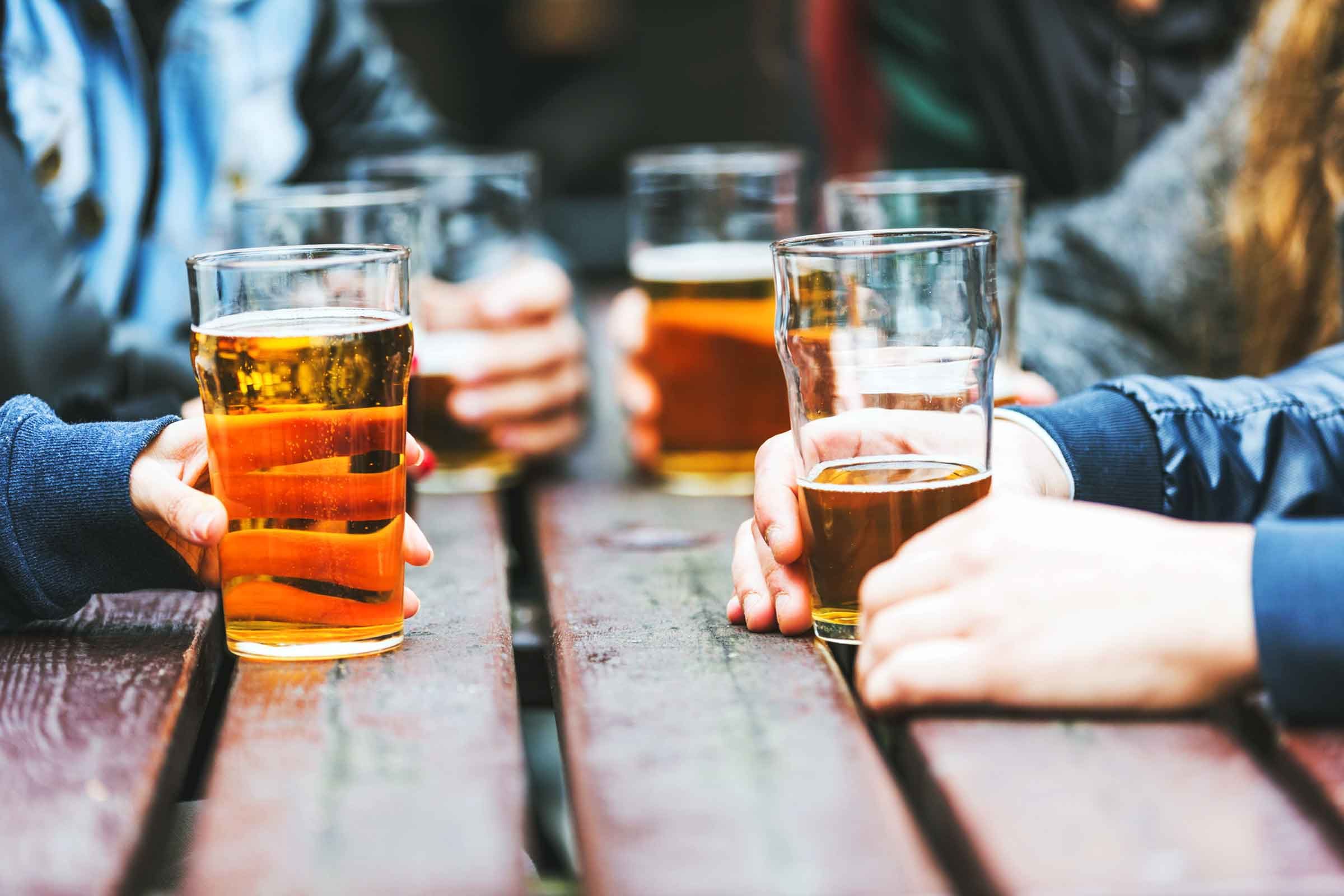
Drinking too much alcohol
We’re all well aware of the damaging effects alcohol can have on the body, especially when it comes to the liver. But what’s surprising for some is that it doesn’t always take excessive amounts of alcohol to cause severe damage. “Overuse of alcohol can differ from patient to patient, but however much is ‘too much’ for you can result in ongoing inflammation and overwork,” says John Iskander, MD, a gastroenterologist at the Kaiser Permanente Los Angeles Medical Center. “Years and decades of ongoing inflammation can ultimately lead to the development of scar tissue and cirrhosis, or end-stage liver disease, which is the leading cause of liver failure in the United States.” If you’re a healthy adult, it’s safe to drink in moderation, but if you have a family history of alcoholism or alcohol-related liver diseases, limit regular use. Don’t miss these fatty liver symptoms to watch out for.

Not drinking enough water
You’ve heard before that you’re supposed to drink at least eight eight-ounce glasses of water a day. While it might seem like a lot, our bodies are composed of approximately 65 percent of the stuff—meaning we need all the H2O we can get. “Dehydration can have a direct effect on our liver’s ability to properly detoxify our body,” says Michele Neil-Sherwood, DO, of the Functional Medical Institute and co-author of The Quest for Wellness. “So as the liver loses hydration, it also loses its organ reserve, or what it uses to take care of the rest of the body.” And when this happens, your risk of illness increases. The general rule is to consume roughly half your ideal body weight in ounces of water daily from a clean water source.
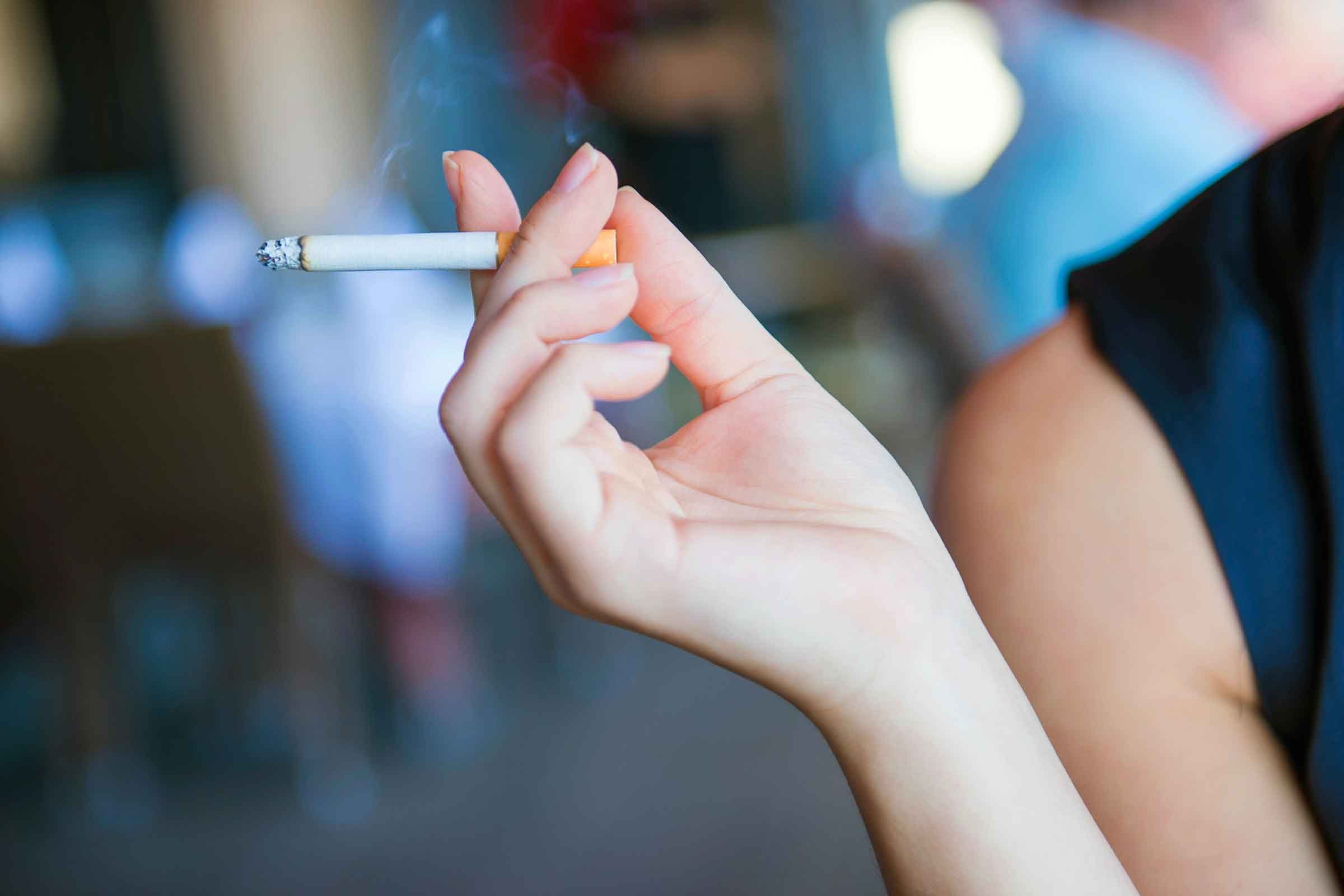
Smoking cigarettes
Each year, about 480,000 people die in the United States alone as a result of cigarette use, reports the Center for Disease Control and Prevention. As if that’s not enough proof of smoking’s hazardous harm to our bodies, a 2011 study found that smoking was the cause of nearly half of all liver cancers. “Smoking is horrific for the system in general because of the harmful chemicals and increase of oxidative stress in the system,” says Dr. Neil-Sherwood. “This stress in the system can eventually reach the liver causing not just liver cell damage but entire system cellular damage.”
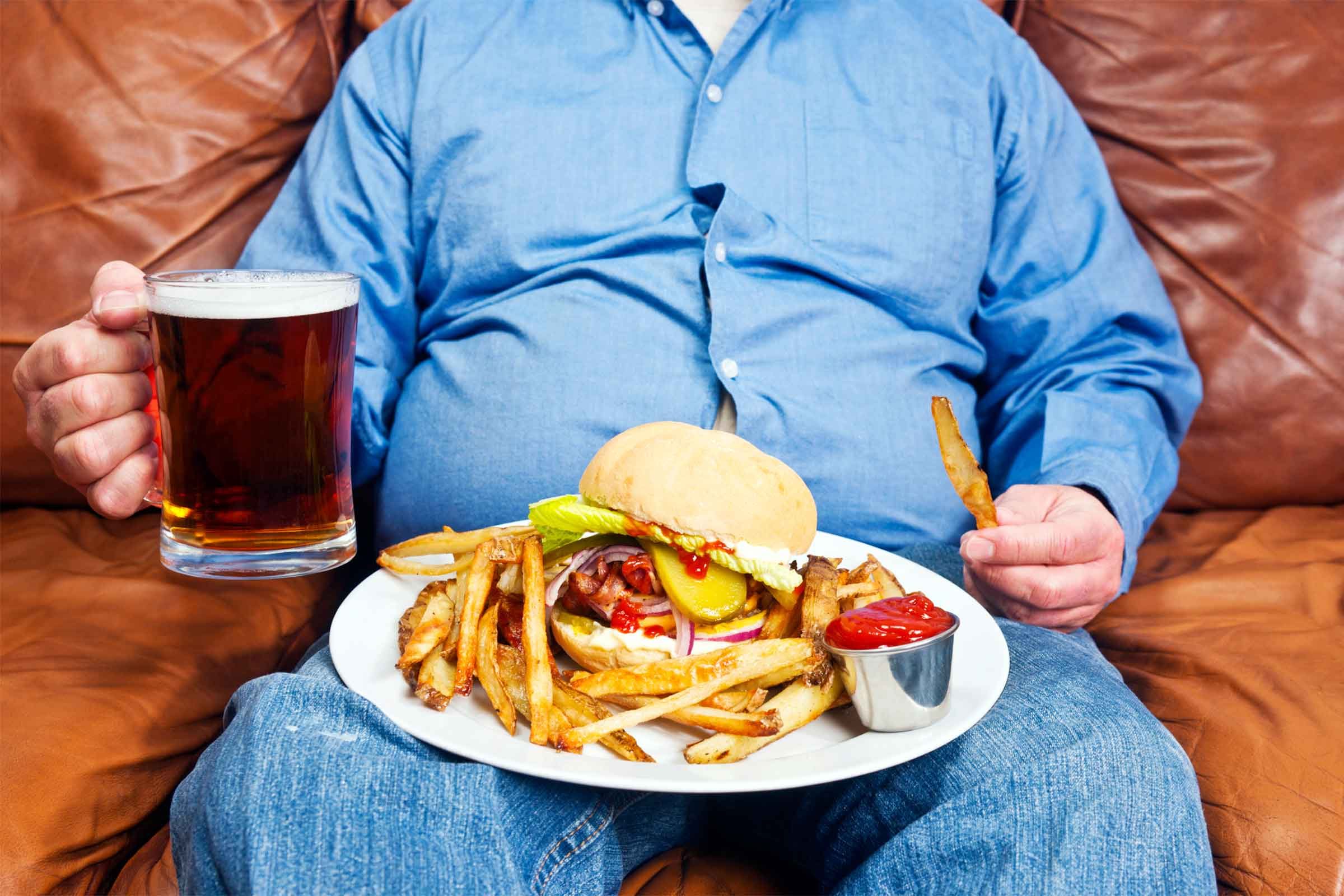
Being overweight
One often-overlooked consequence of being overweight is fat buildup that accumulates around the liver and can lead to non-alcoholic fatty liver disease (NAFLD). This disease refers to a wide spectrum of liver diseases that range from fatty liver to nonalcoholic steatohepatitis (NASH), and cirrhosis, or permanent scarring of the liver as a result of chronic inflammation. “The term ‘nonalcoholic’ is used because the damage to the liver is so similar to the damage caused by alcohol damage, even though these patients do not consume excessive amounts of alcohol,” explains Dr. Brown. If you have NAFLD or NASH, it’s especially important to eat a healthy diet and exercise to help keep your liver health in check. Learn more about NASH and what to look at out for.

Ingesting too much sugar in your diet
You know it’s important to limit the amount of sugar you eat and drink, but you may be surprised to learn that what you risk is a potential liver disease diagnosis. The main problem lies with high fructose corn syrup, an extremely popular substance in the standard American diet (SAD). “While nearly every cell in the body is able to metabolize glucose, only the liver cells can handle fructose,” says Dr. Sherwood of the Functional Medicine Institute in Tulsa, Oklahoma. “If we consume too much fructose over time, the liver can become overwhelmed and suffer irreparable damage.” Do your best to limit foods with refined sugars and high-fructose corn syrup, such as soda, baked goods, and other sweets, and stick to natural sources of sugar like fruit.

Eating high glycemic foods or large meals before bed
The majority of your liver functions happen at night, so indulging in heavy foods will only create more work for the organ—think those that contain margarine, shortening, or canola oil. “Instead snack on fresh raw carrots and beets in the evenings, as both are powerful liver cleansing and rebuilding foods,” says California-based MD George Kosmides. Don’t miss these signs your liver is in big trouble.
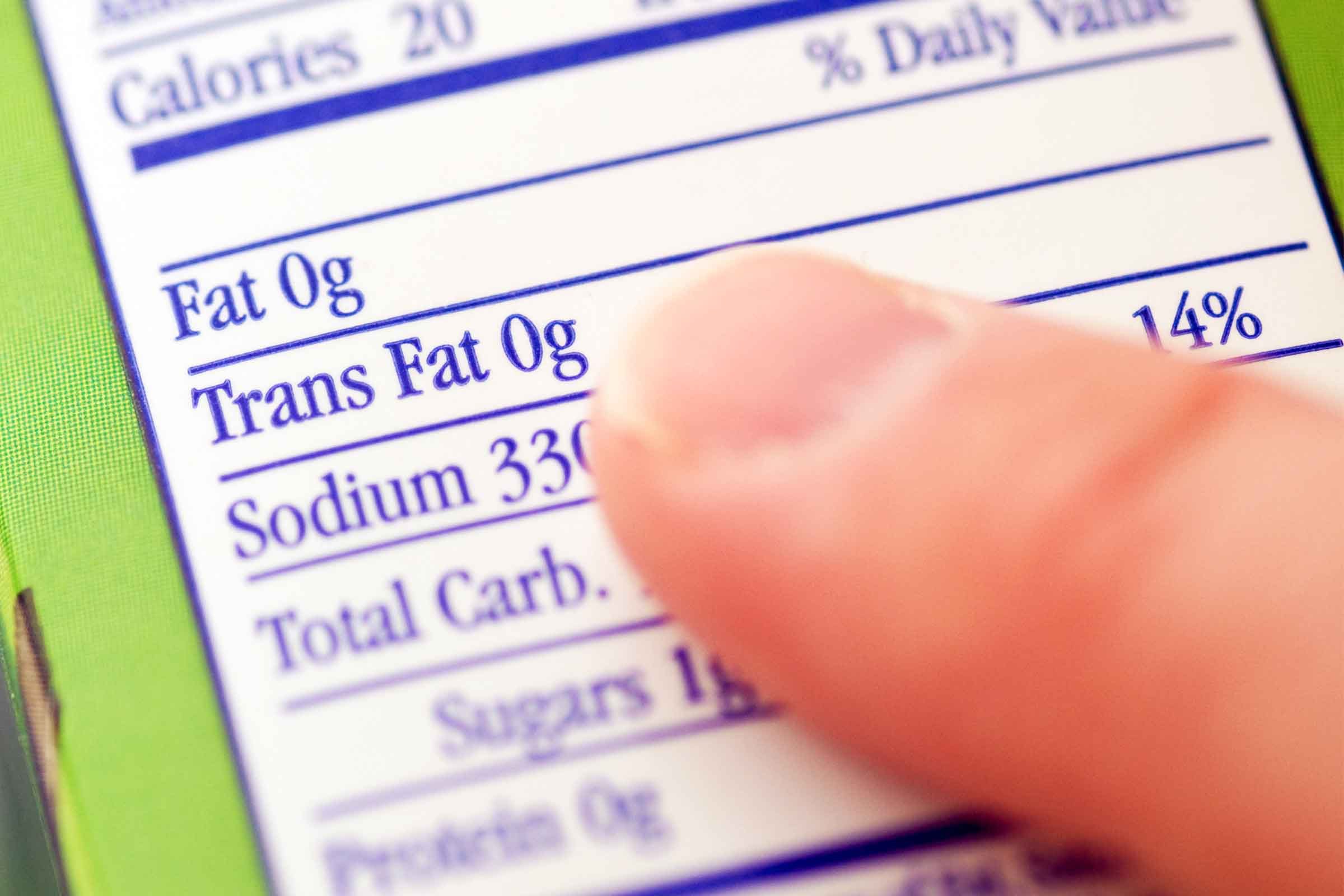
Loading up on trans fats—any time of day
If you have high cholesterol, you’re probably used to being warned about the danger of trans fats—man-made hydrogenated oil that makes food less likely to go bad. Trans fats raise your “bad” cholesterol, or LDL, while lowering your body’s amount of “good” cholesterol, HDL. You can find them in most baked goods, pre-packaged snacks like chips and microwave popcorn and fried foods. Some restaurants even add a form of trans fats to their deep fryers so that they have to change the oil less frequently. Gross, right? The food we eat can play a major role in the development of disease, so you’ll also want to know about these 10 foods that are linked to cancer.
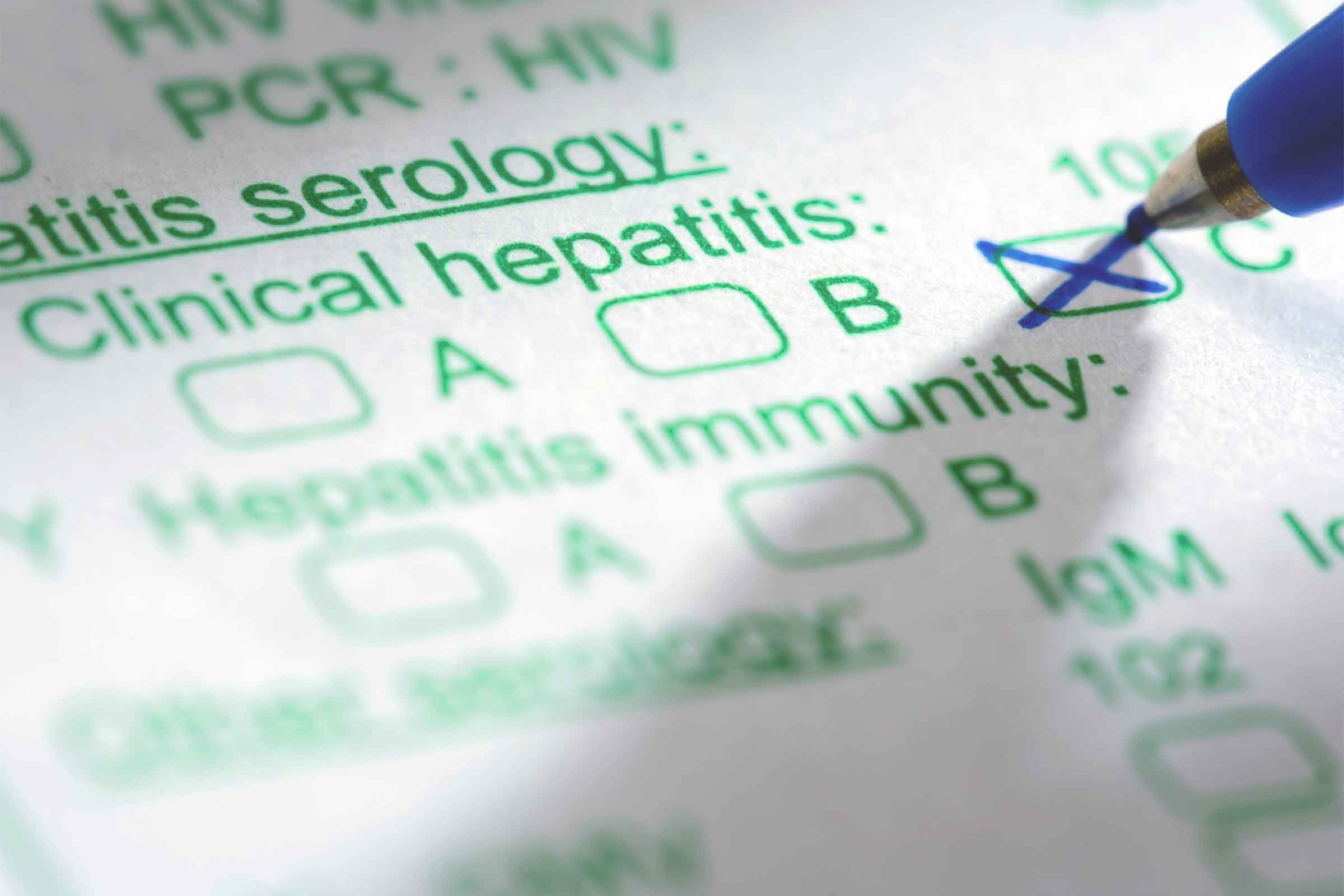
Engaging in unsafe sex
Having unsafe sex, particularly with multiple partners, could be a bigger threat to your liver health than you may realize. The biggest and most significant risk is that you could contract hepatitis, a potentially deadly liver disease that can be transmitted sexually. “While there are three common forms—A, B, and C—the one you want to look out for when it comes to sexual activity is hepatitis B, which can be spread through direct contact with blood or bodily fluids, not just blood or feces, like the other two,” says Dr. Brown. To protect your liver and your overall health, it’s vital to practice safe sex, every single time.
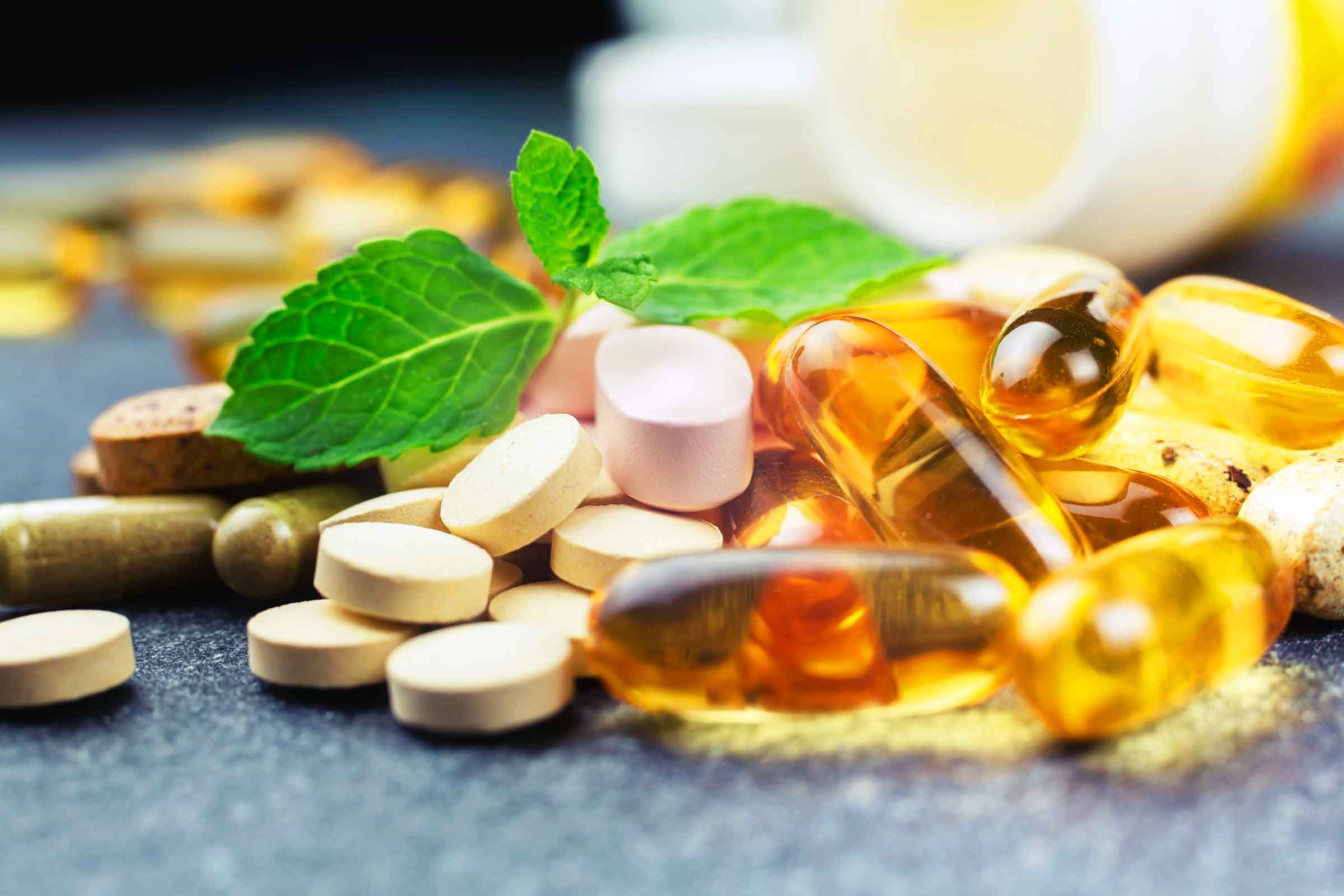
Certain herbal supplements and vitamins
Believe it or not, taking too many supplements can contribute to liver damage—yes, even quality food supplements. Just because something says it’s ”all-natural” does not mean it’s completely fine for you to take. “The role of the liver is to filter out toxins and it does this through a complex metabolic process of breaking down everything we ingest—even certain supplements,” explains Dr. Brown. “During this process, certain supplements can damage the liver.” And because herbal supplements are not well-regulated in America, there’s no clear-cut way to determine if a supplement is right for you. Your best bet is to check in with your pharmacist or primary doctor who can determine how a supplement or vitamin will line up with your health history. For more of a holistic solution, try these detox foods that cleanse your body naturally.

Being overly stressed or frustrated
Excessive, prolonged stress can be unhealthy for a variety of reasons, and potentially for your liver. Research out of the University of Edinburgh published in the journal Gastroenterology, showed evidence of a possible link between high levels of psychological distress (symptoms of anxiety and depression) and deaths resulting from a variety of liver diseases. While these findings require further scientific evaluation, many in the medical community recognize there are links between the mind and body. Traditional Chinese medicine has been preaching this for thousands of years—that most organs are connected to an emotion. “Most people don’t realize that the liver is affiliated with anger, as it’s believed that anger blocks the liver’s energy flow,” says Dr. Neil-Sherwood.

Not getting enough exercise
Even if you’re not overweight, exercise should be a strict part of your weekly routine—at least for your liver’s sake. “During exercise, pores are opened and perspiration is increased, which leads to improved detoxification,” says Dr. Neil-Sherwood. “This not only helps the liver but works in tandem with the liver, whose full-time job is to detoxify the body.” The American Heart Association recommends at least 150 minutes of moderate level activity a week, which could be as simple as going for three 50-minute brisk walks!

Relying too heavily on OTC medications
It’s amazing that you can relieve a headache, fever, or muscle aches with something you can easily buy at your local drug store. But the reality is that these medications can be toxic when used too frequently or in large amounts. “Just like anything else we digest, these medications pass through the liver and carry a level of toxicity that can cause long-term damage to the organ,” explains Dr. Brown. “While acetaminophen, for example, is extremely safe when taken in the correct dosage (4000 mg/day), taking too much could cause liver damage, ranging from abnormalities in liver function blood tests, to acute liver failure, and even death.” And since acetaminophen is in many combination pills for pain, headaches, liquid medicine for colds, etc., you may be taking too much without realizing it. These are some other medication mistakes that could make you sick.
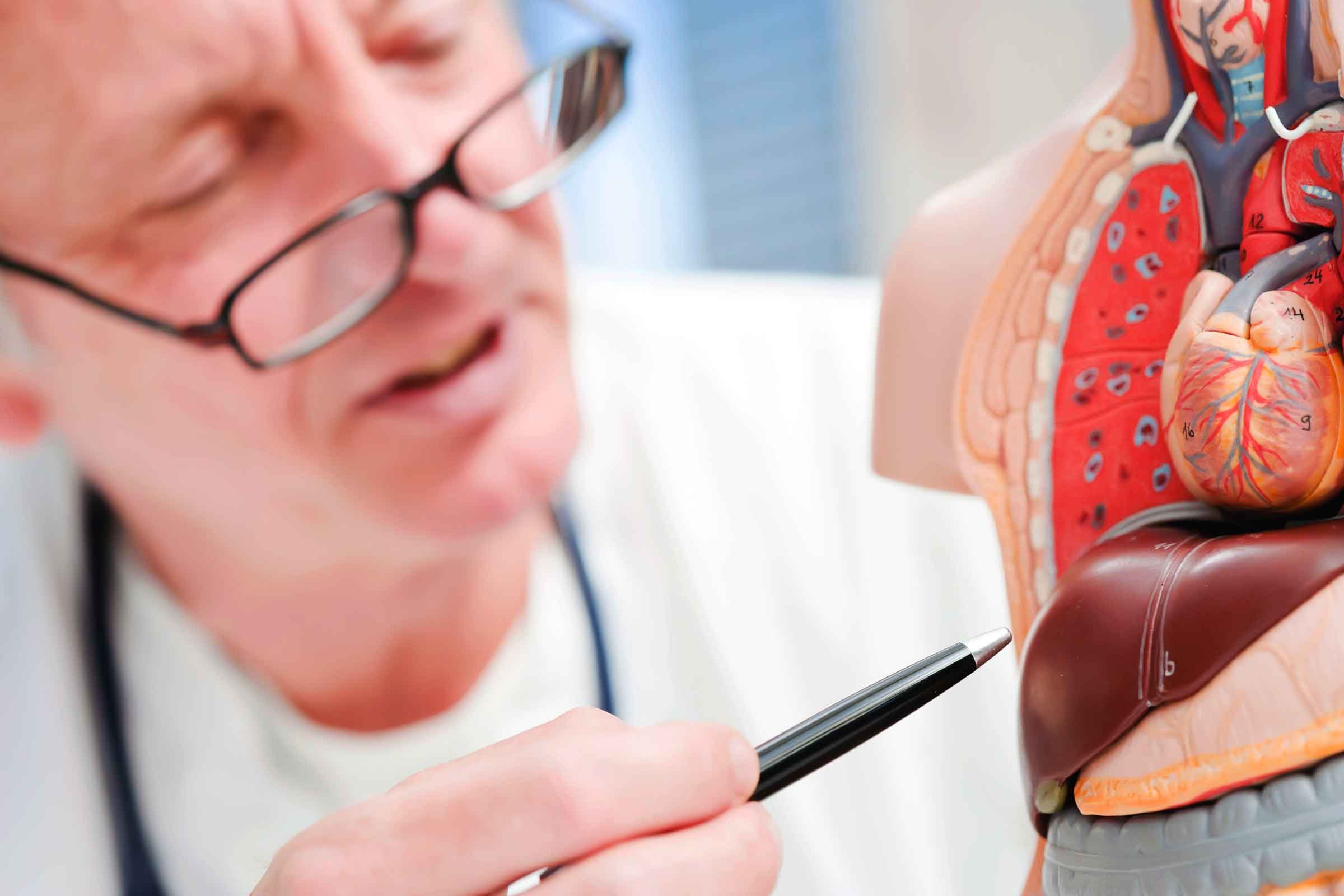
Skipping liver function tests
Most people recognize the importance of having their cholesterol and heart rate tested during regular check-ups, but many don’t think about getting their liver function checked, particularly if they don’t drink excessive alcohol. “This is dangerous because some liver conditions have nothing to do with alcohol consumption, and have little or no symptoms until the disease has advanced,” says Dr. Brown. “While a liver biopsy may be needed for definitive diagnosis of any liver disease, most liver diseases including both PBC (primary biliary cholangitis) and NASH, are serious liver diseases that may be initially discovered through simple liver blood tests during routine physical exams.” Ask your doctor if he or she thinks you are a candidate for liver function tests. Now that you know how you could potentially be hurting your liver, be sure to know these 8 silent signs of liver cancer you shouldn’t ignore.
